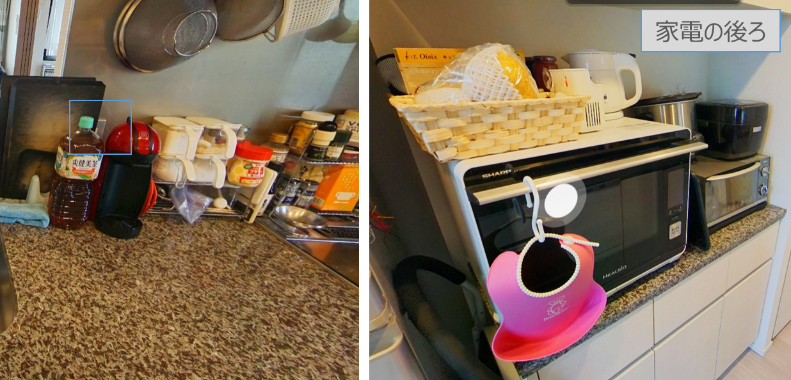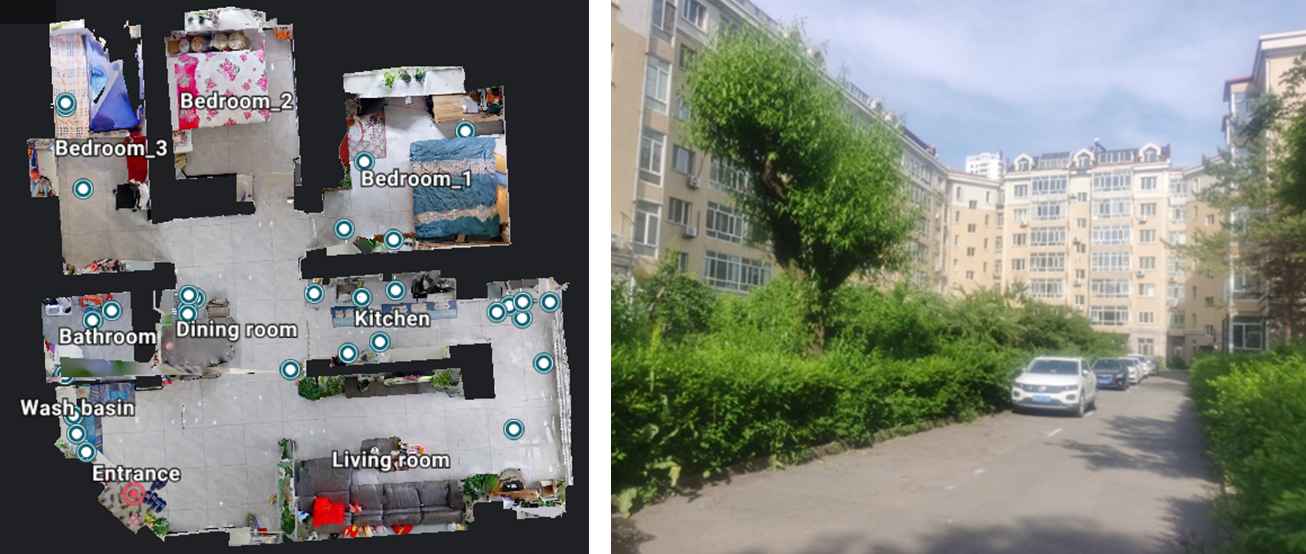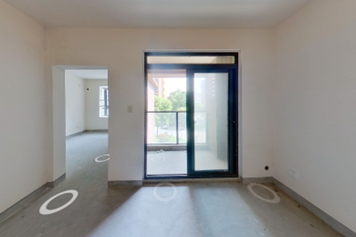[China: World Residence Tour]Changes in Lifestyle Seen from the Bedroom
- Release date: Dec 08, 2023
- Update date: Sep 11, 2025
- 4219 Views
It is often said that sleep accounts for about one-third of our lives. Therefore, sleep quality significantly impacts overall life satisfaction. Furthermore, over the past 30 years of dramatic societal change in China, people's lifestyles have also undergone major transformations. This is reflected in sleep habits and bedroom design. This time, we will explore changes in bedrooms and the underlying shifts in lifestyle, while introducing bedrooms of consumers registered in Consumer Life Panorama.
The Transforming Bedroom, The Changing Sleep
Looking at overall sleep duration, Chinese people do not necessarily sleep less than those in developed countries like Japan. However, among working adults in their 30s living in major cities, there are issues with sleep quality. Generally, two major factors influence sleep quality. One is psychological factors, such as pressure from work and daily life. The other is the external environment directly related to sleep: the bedroom environment.
Regarding psychological factors, working adults in their 30s living in major cities face significant pressure from both work and daily life. One term gaining traction in China recently is “996,” referring to working from 9 AM to 9 PM, six days a week. Furthermore, men feel compelled to purchase real estate for marriage (see reference column: [Marriage and Assets Around the World: China Edition - Preparing for Marriage]). Even with parental assistance in Shanghai, many families cannot afford a lump-sum purchase and must take out mortgages. Carrying this daily burden of work pressure and maintaining household finances naturally leads to poorer sleep quality compared to those in provincial cities.
Another contributing factor is the changing pre-sleep routine. Previously, many households placed televisions not only in the living room but also in the master bedroom, reflecting the habit of watching TV before bed. In the past, people placed TV stands and mounted TVs on them. As flat-screen TVs became popular, wall-mounting became common, saving space. TV programs aired at fixed times, so once the desired show ended, people could turn off the TV and go to sleep. In contrast, TVs have largely disappeared from bedrooms in recent years. The reason behind this is the proliferation of smartphones.

Bedroom with TV stand (left, CN_111),Bedroom with wall-mounted TV (center, CN_92),
Bedroom with neither TV stand nor TV (right, CN_94)
Source: Consumer Life Panorama
What is Consumer Life Panorama?
This is a website-type database that has accumulated visual data on more than 1,000 sei-katsu-sha from 18 countries around the world. The database includes many 3D models of living environments and 2D data of items owned by each sei-katsu-sha, and is useful for understanding overseas sei-katsu-sha, which is difficult to grasp using only letters and numbers.
Using visual data such as those cited in this column,
Compare the differences in the attributes of overseas consumers
To get a realistic understanding of the actual usage of each category
To understand the overall lifestyle of target consumers
etc., can be utilized as a “no-go” home visit survey.
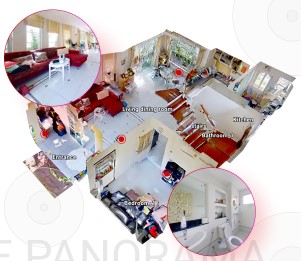
The proliferation of smartphones has enabled people to search for information and watch videos anytime, anywhere. As a result, more people are checking their phones before bed every night. Taking two married men registered in “My Day”—a feature in Consumer Life Panorama that charts daily schedules on weekdays and holidays—as examples: on weekday evenings, they spend time with their children after 9 PM, put them to bed at 10 PM, and then have an hour from 11 PM to midnight to use their phones. Particularly in recent years, apps like TikTok, which use AI to endlessly recommend video content, have proliferated. This often leads to people losing track of time while using their phones, negatively impacting both the quantity and quality of their sleep. Furthermore, because the habit of using smartphones in bed is common, outlets for charging phones are now standard on both sides of the bed.
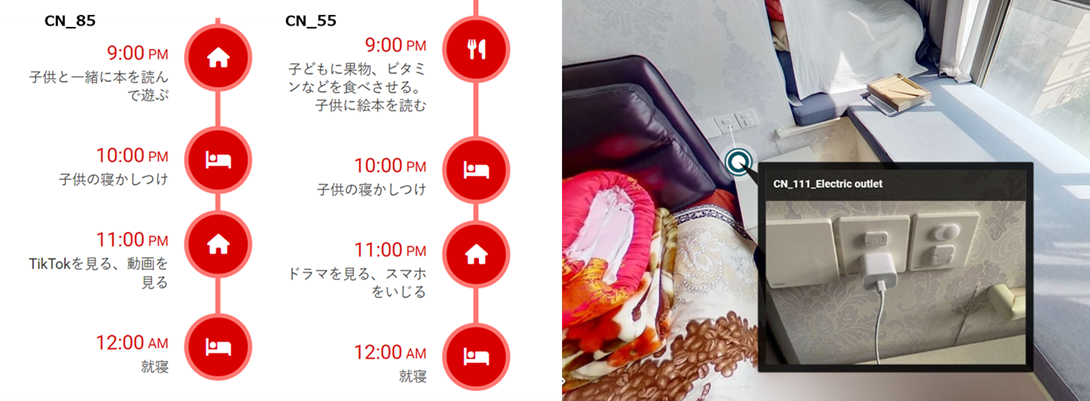
Schedule after 9 PM (left, CN_85, CN_55) and outlet near the bed (right, CN_111)
Source: Consumer Life Panorama
In recent years, some people have installed projectors in their bedrooms instead of televisions, allowing them to watch movies from bed simply by connecting their smartphones. While entertainment consumption in the bedroom has increased, the downside of this trend—robbing people of sleep time—has also become apparent.
Small Tips for Improving Sleep Quality
On the other hand, as more people seek a good night's sleep after an exhausting day, efforts to improve sleep quality are also increasing.
One approach is improving the air quality in the bedroom. Some households purchase air purifiers for this purpose. However, since air purifiers aren't bought solely for the bedroom, many opt for models with casters, allowing them to be placed in the living room during the day and moved to the bedroom at night. Additionally, to reduce the number of trips in and out of the bedroom at night, many households, especially those with master bedrooms, install bathrooms directly adjacent to the bedroom.
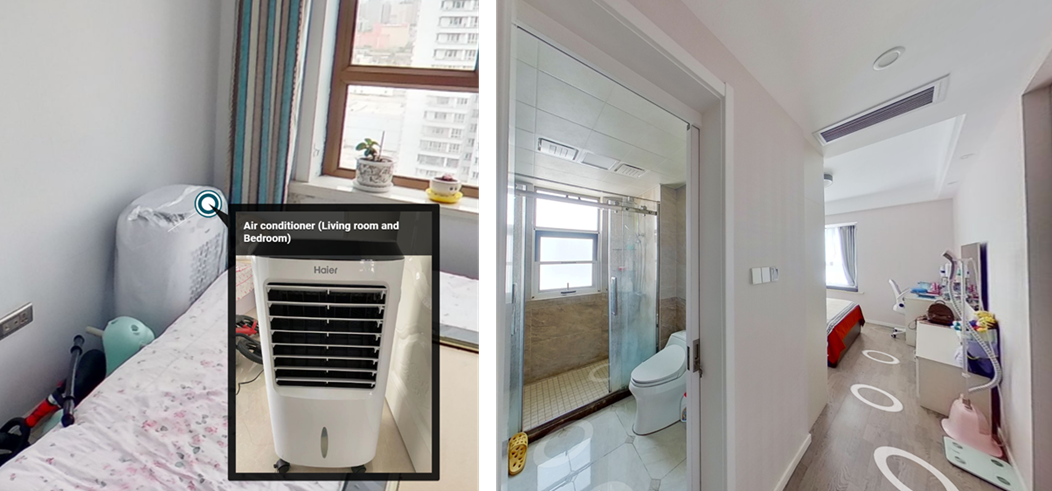
Air purifier with casters (left, CN_94) and bathroom in the bedroom (CN_111)
Source: Consumer Life Panorama
Another improvement lies in the curtains. Previously, curtain rods were popular because they offered design appeal as decorative interior elements and were easy to install. However, curtain rods have poor light-blocking properties, inevitably allowing light to seep in during the morning, which negatively impacts sleep quality. Consequently, some households are shifting from decorative interiors to more comfortable living spaces by installing rail curtains or choosing curtains with high light-blocking capabilities.
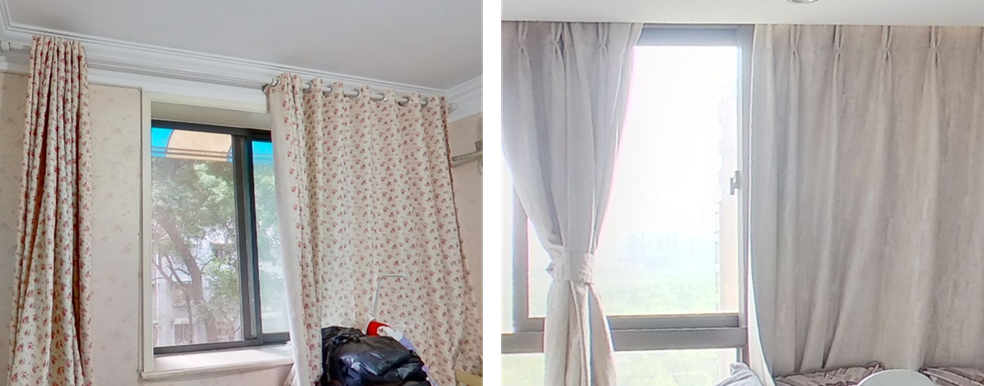
Bedroom using a curtain rod (left, CN_84) and bedroom using a curtain rail (CN_54)
Source: Consumer Life Panorama
-

Author profile
Yang Yan
A Chinese researcher based in Japan, primarily reporting on the realities of overseas consumer lifestyles. Since the start of telework, they have set up a telework space in their bedroom, making it multifunctional.
-

Editor profile
Risa Takahama
I'm in charge of building the Global Market Surfer website. When I'm consistently sleep-deprived, I drink a nutritional drink to improve sleep quality before bed, and I feel like I wake up feeling better somehow.
 Global Market Surfer
Global Market Surfer CLP
CLP
